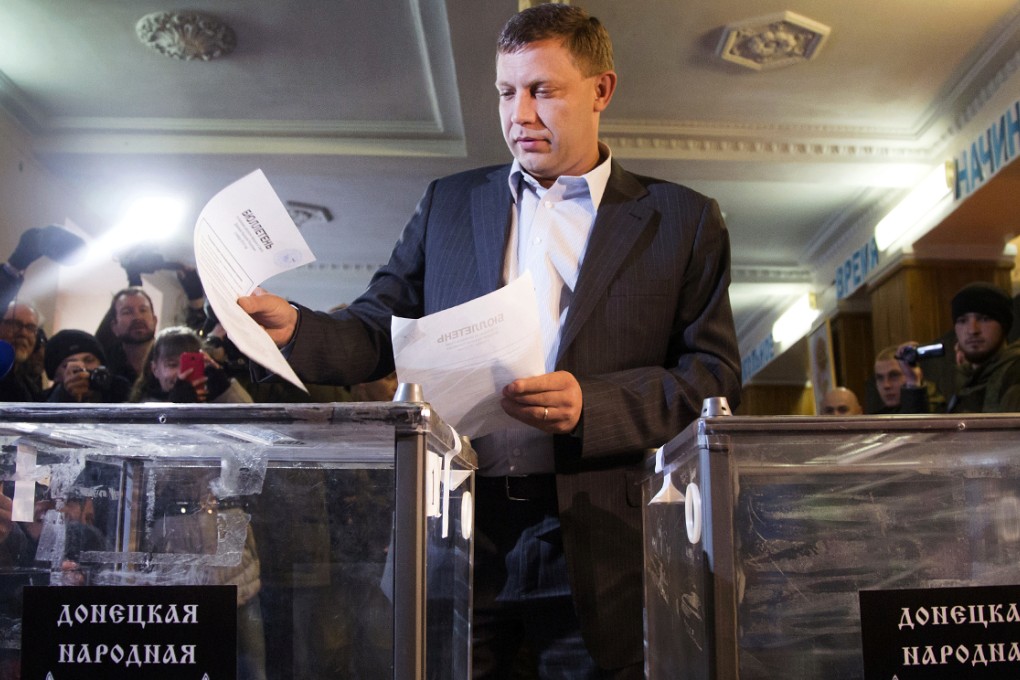E.U. blasts Russian support for 'illegal' elections in eastern Ukraine
Russian recognition of polls in rebel-held areas of eastern Ukraine prompts German warning of possible further sanctions against Moscow

Europe has slammed Moscow's recognition of elections held by pro-Russian separatists in eastern Ukraine saying it was "incomprehensible" and warned of possible further EU sanctions.
German Chancellor Angela Merkel's top spokesman said the "so-called elections" in the rebel-held areas were illegitimate and "further aggravate the crisis" in the conflict-torn former Soviet-ruled country.
Earlier, EU foreign affairs head Federica Mogherini issued a statement slamming the polls that saw the rebels' Kremlin-backed leadership cruise to an entirely-expected victory as "a new obstacle on the path towards peace in Ukraine".
German Foreign Minister Frank-Walter Steinmeier said the elections went "against the letter and spirit" of an internationally brokered truce deal in September that was meant to halt the war in eastern Ukraine. He urged Russia to respect "the unity of Ukraine".
Ukrainian President Petro Poroshenko blasted the ballot as a "farce that is being conducted under the threat of tanks and guns".
Russia had ignored Western appeals ahead of the votes in the Donetsk and Lugansk regions and gave its full backing to the elections that Kiev branded an illegal farce.